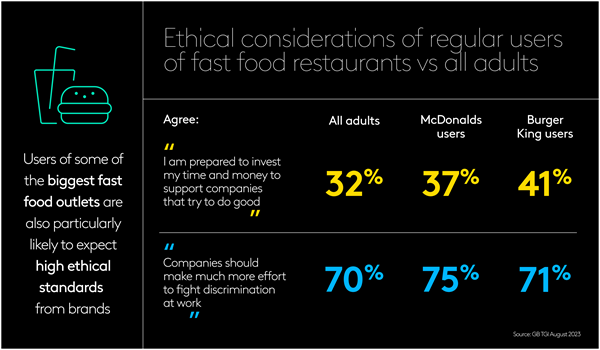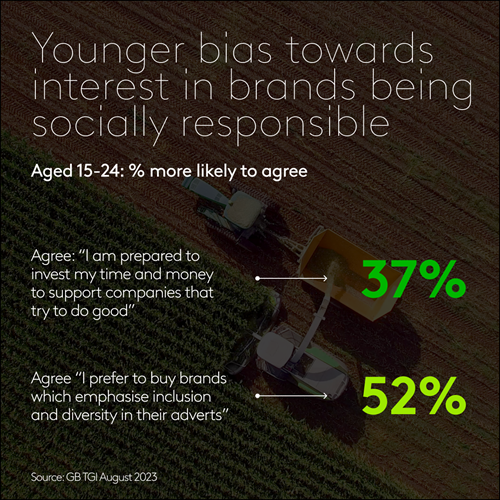With McDonald’s recently coming under fire following reports of staff harassment, we explore consumer engagement with corporate ethics today

McDonald’s recently came under fire following reports of bullying, assault and harassment by staff at the fast food chain’s restaurants. As well as the legal implications, such claims can be commercially very damaging for brands, especially where their regular customers are particularly likely to be actively supportive of companies doing good, supporting inclusion and diversity and fighting workplace discrimination.
Indeed, regular customers of some of the biggest fast food chains tend to be more invested in ethical considerations than British adults as a whole.

Regular users of these fast food brands tend to be at the younger end of the age spectrum.
For example regular users of McDonald’s are 44% more likely than the average adult to be aged 15-24.
Agreement with wanting companies to do good and promoting inclusion and diversity is also concentrated amongst younger age ranges.

The wider trend in recent years has been towards more and more adults showing interest in companies acting in an ethical fashion.
Indeed the proportion of consumers who agree they think it is important a company acts ethically grew steadily from 67% in 2018 to 73% last year.
However there are signs that the cost of living crisis may have checked this growth – even if only temporarily – as some consumers feel they have to prioritise cost over ethics and sustainability priorities.
